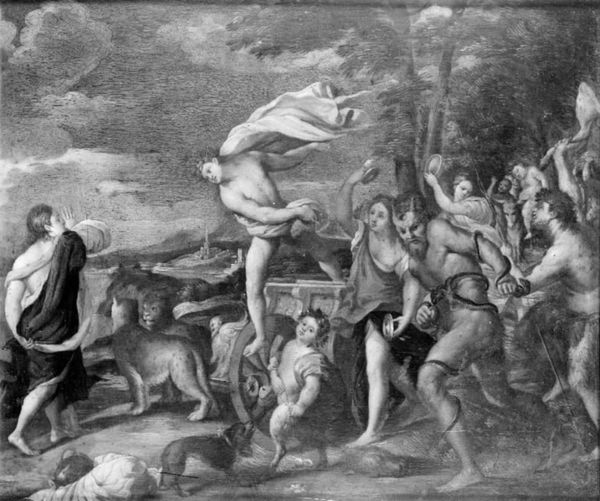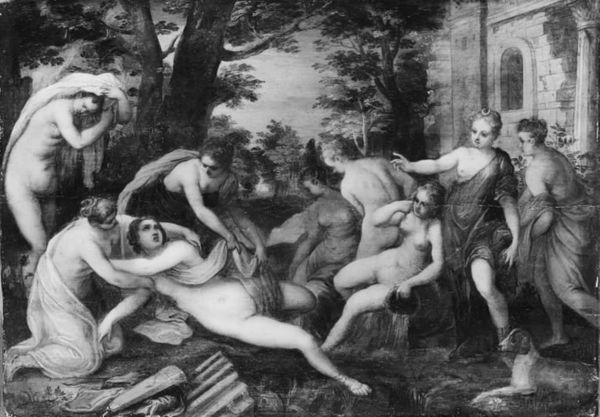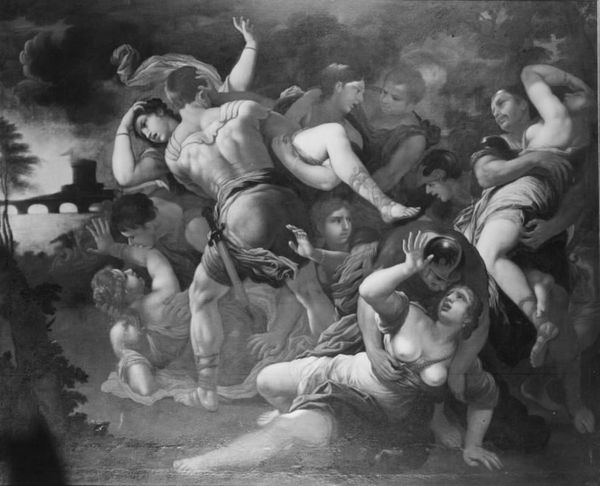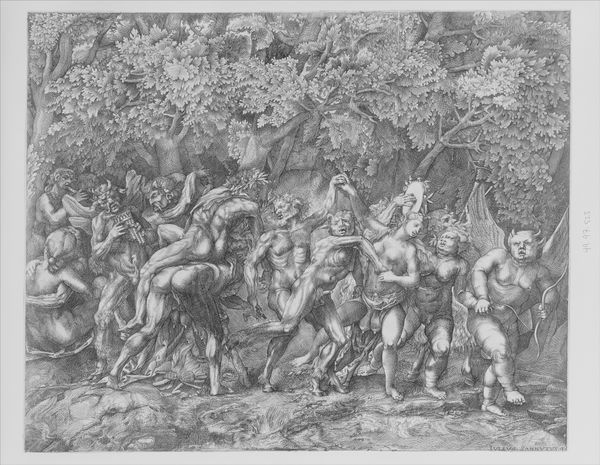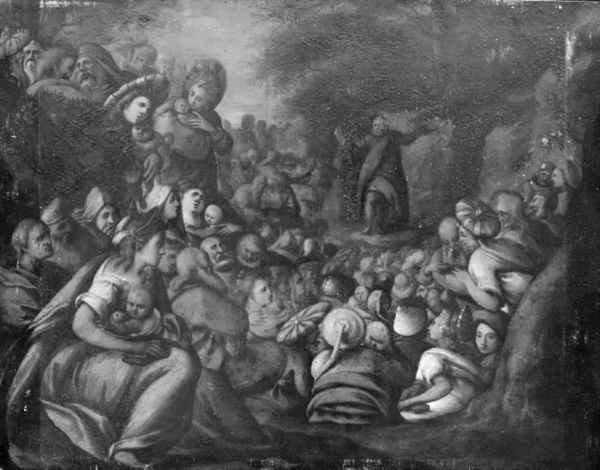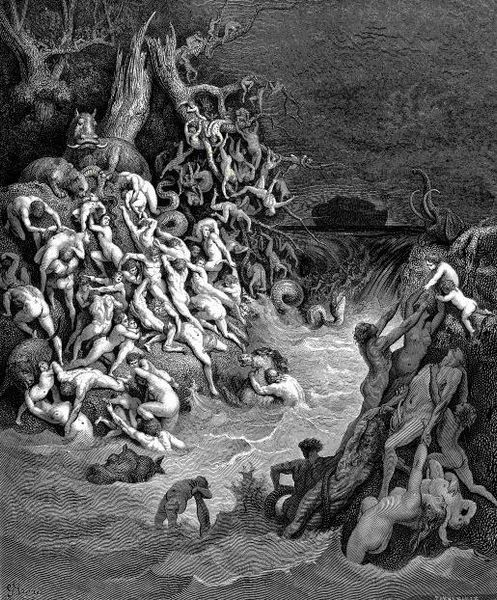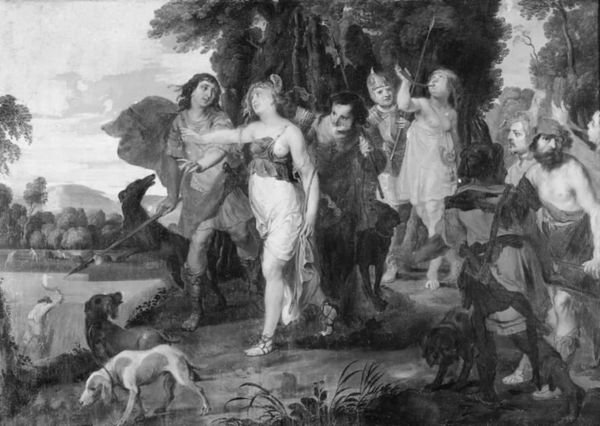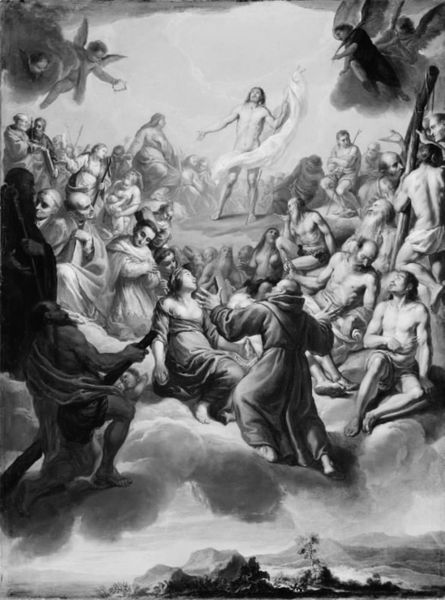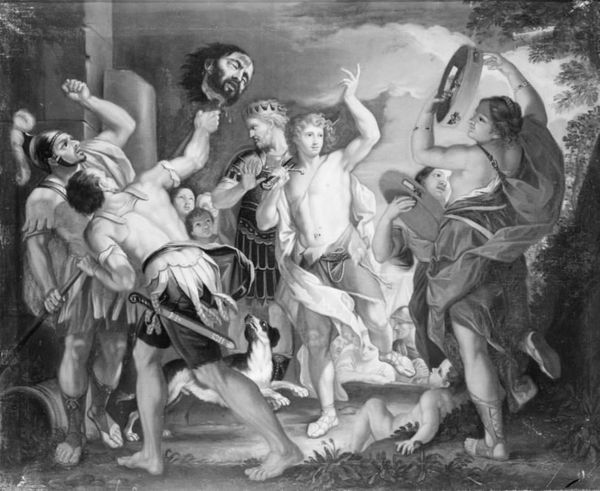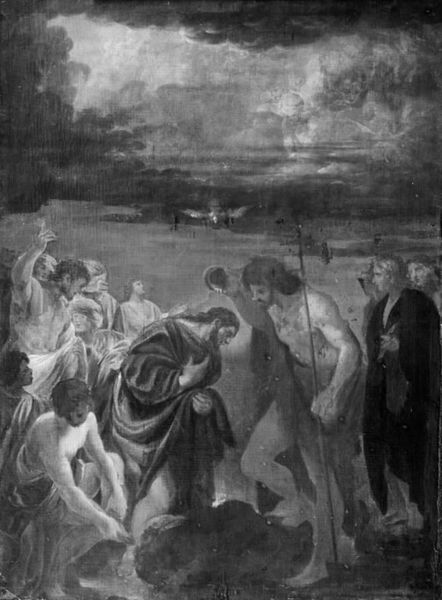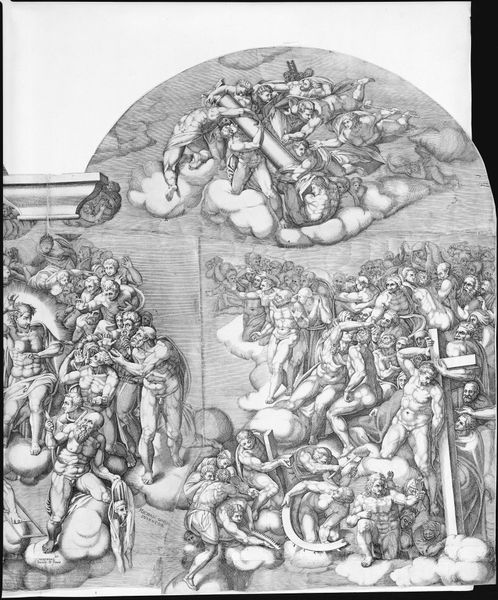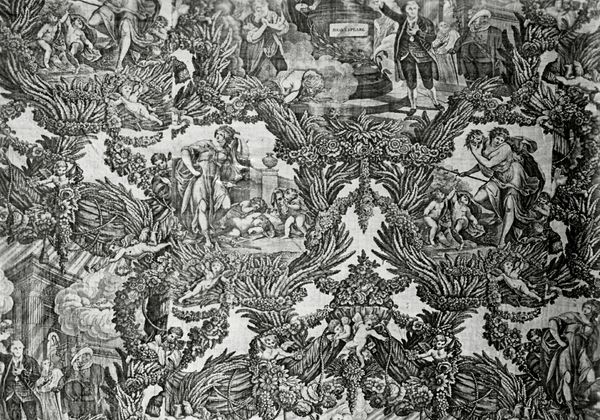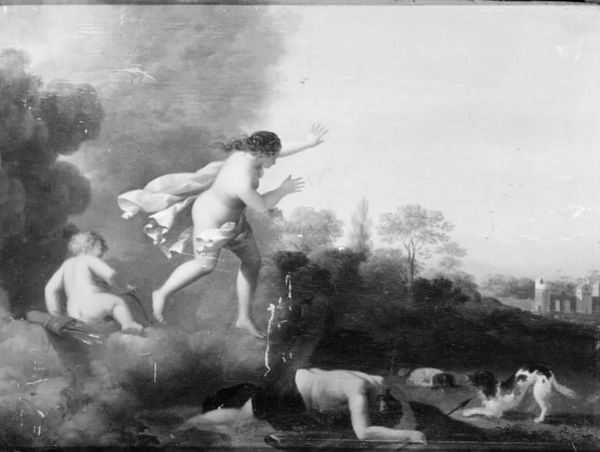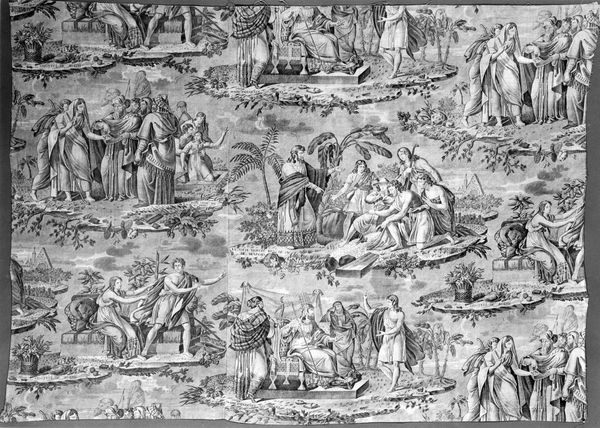
The Banquet of the Gods. The Wedding of Peleus and Thetis 1590 - 1633
0:00
0:00
painting, oil-paint
#
allegory
#
narrative-art
#
baroque
#
painting
#
oil-paint
#
figuration
#
classicism
#
history-painting
#
monochrome
#
italian-renaissance
#
nude
#
monochrome
Dimensions: 47 cm (height) x 67 cm (width) (Netto)
Curator: This allegorical history painting, simply entitled “The Banquet of the Gods: The Wedding of Peleus and Thetis”, created sometime between 1590 and 1633, invites us to contemplate intersectional readings. Editor: My first thought? A lot of labor went into this. All those bodies, all those meticulously rendered details, point to immense work involved in its making. Curator: Absolutely. Look at how the narrative emphasizes this important marriage as a moment of cultural significance, drawing parallels with Renaissance ideals of status and divine right, but it is clearly an imagined event rather than an actual portrayal. How can the theme of forced marriage within mythological contexts become an allegory of gender imbalances within 17th century social systems? Editor: Considering the time involved to mix and apply oils, there's an evident display of wealth, certainly, which speaks to class and consumption, not only about who is represented, but about who the artwork was made for. Curator: Yes, and within these gatherings, who is present and who is excluded? How are notions of idealized beauty interwoven with race and power? We must ask ourselves these questions about gender roles at the center of marriage during the period to unpack power dynamics here, right? The means of depiction are themselves loaded with ideological implications, isn't that correct? Editor: Certainly, in its construction the image is embedded within particular social strata, it portrays both consumption of materials but, implicitly, conspicuous labor. Can we consider the social conditions inherent in the labor needed to prepare the oil paints themselves, let alone the craftsperson's labor? Curator: By questioning the narratives depicted in artwork like this one, and thinking of it from both ends-- from raw production to political implication -- we can confront not just the legacies of systemic oppression, but find potential avenues of action that move towards justice. Editor: Absolutely, reflecting on the physical process of its production reminds me of broader power structures too. Thank you for widening my gaze on it!
Comments
No comments
Be the first to comment and join the conversation on the ultimate creative platform.
